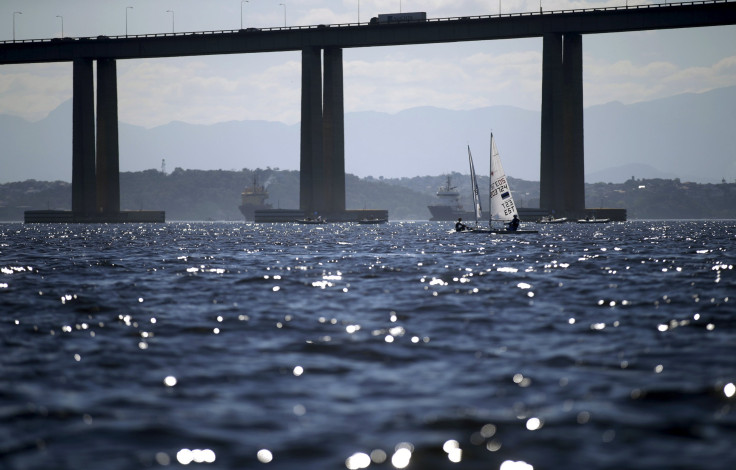Rio Olympics 2016: Amid Water Pollution Fears, National Sailing, Rowing Teams Take Precautions

Several Olympic sailing and rowing teams are taking special precautions this month as they compete in the same polluted waterways that will host 2016 Summer Olympics events in Rio de Janeiro. So far, Olympic officials have done little to address reports that the aquatic venues are dangerously rife with bacteria and viruses, even as people competing in test events have fallen ill.
Athletes gathered in Rio this week for an Olympic test event on Guanabara Bay, where sailing and swimming events will be held in 2016. Officials from several national teams, including the United States, Mexico and Australia, have instructed sailors and rowers on how to avoid falling ill while competing on Rio’s contaminated waters, the Associated Press reported. Australia’s national team has placed hand sanitizers on some of its boats, while Mexico’s sailing officials warned their athletes not to accidentally ingest any water.
“It’s not normally such a consideration at any other events, but clearly it’s a consideration here,” Peter Conde, the Australian sailing team’s performance director, told the AP.
Hannah Mills & Saskia Clark poised third on day three at Rio 2016 test event in Guanabara Bay http://t.co/xiwt2BNApF pic.twitter.com/NpLqfdEipv
— Uni of Chichester (@chiuni) August 18, 2015Rio Olympic officials vowed to clean up 80 percent of the area’s water pollution if they were awarded the bid, but as of July had built just one of eight promised facilities to treat tainted water. Even without those facilities, Rio’s hosting expenses rose from an initial projection of $2.93 billion to $13.2 billion as of last May. Foreign interests have contributed hundreds of millions in loans toward cleanup efforts since the early 1990s, but have seen little progress for their investments.
It’s growing increasingly likely that Rio’s water pollution will be a dubious legacy for the 2016 Summer Olympics. An independent Associated Press investigation in July found dangerous levels of both viruses and bacteria in every single one of Rio’s Olympic waterways, where hundreds of athletes will compete next summer.
Earlier this month, 13 members of the U.S. junior rowing team experienced diarrhea and vomiting after competing at the World Rowing Junior Championships in Rio. Officials would not definitively blame the illnesses on water pollution, but said it probably played a role.
The International Olympic Committee has no plans to conduct its own tests of virus levels in Rio’s waterways before the 2016 games, the Washington Post reported. An IOC official said the organization adheres to the World Health Organization’s guidelines for bacteria tests.
© Copyright IBTimes 2025. All rights reserved.






















